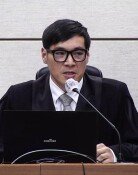[Op-Ed] Royal Books of the Joseon Dynasty
[Op-Ed] Royal Books of the Joseon Dynasty
Posted February. 02, 2010 09:01,
The last king of the Joseon Dynasty, Sunjong, collected all the books belonging to the royal family in 1907 and put them in the care of Gyujanggak, an institute created by King Jeongjo after he ascended to the throne in 1776 to store the belongings of previous kings and books. Jeongjo set up a similar institute on Ganghwa Island in 1782. In 1866, some 300 valuable books in the Ganghwa institute was looted by invading French troops. The French continue to refuse to return the relics to Korea.
About 100,000 Joseon royal books scattered throughout Korea were collected in 1907, a tremendous figure befitting Koreas image as a country of academia. They were called the books of the royal house. Gyujanggak was removed, however, after Japan annexed the Korean Peninsula in 1910. The books were then taken by the Japanese colonial government and transferred to Keijo Imperial University (now Seoul National University) in 1923. The annals of the Joseon Dynasty, which were stored at a history library at Mount Odae, were moved to Tokyo University but most of them were lost in the 1923 Kanto earthquake in Japan. After Korea gave up its sovereignty, its valuable documents were moved here and there, with some going to foreign countries.
Joseon royal books have been found stored at Japans Imperial Household Agency. The 375 books cover 38 genres including Confucian and medical texts and those used at Gyeongyeon, an event in which Joseon kings held regular discussions on Confucianism with his subordinates. The agency is a government entity that manages Japans royal family, and it seems these books are considered their de facto property. Aside from the books, the royal family has 269 books covering 79 genres, including the royal protocols of the Joseon Dynasty.
How the Joseon royal and Gyeongyeon books ended up in the hands of the Japanese royal family is now known, but they could have been transferred to Japan after Korea lost its sovereignty in 1910. Getting these books returned will be hard because the right to reclaim Korean cultural treasures that went to Japan expired after both countries normalized diplomatic relations in 1965. Making things more difficult is the lack of clear evidence that the books were illegally sent to Japan. The most desirable option is that Japan voluntarily returns the relics over a sense of regret for its past misdeeds this year, which marks the centennial anniversary of Japans colonial annexation of Korea. The Korean government must also get those books back through diplomatic efforts.
Editorial Writer Hong Chan-sik (chansik@donga.com)






![“설거지해도 그대로”…냄비 ‘무지개 얼룩’ 5분 해결법 [알쓸톡]](https://dimg.donga.com/c/138/175/90/1/wps/NEWS/IMAGE/2026/01/15/133164664.3.png)
